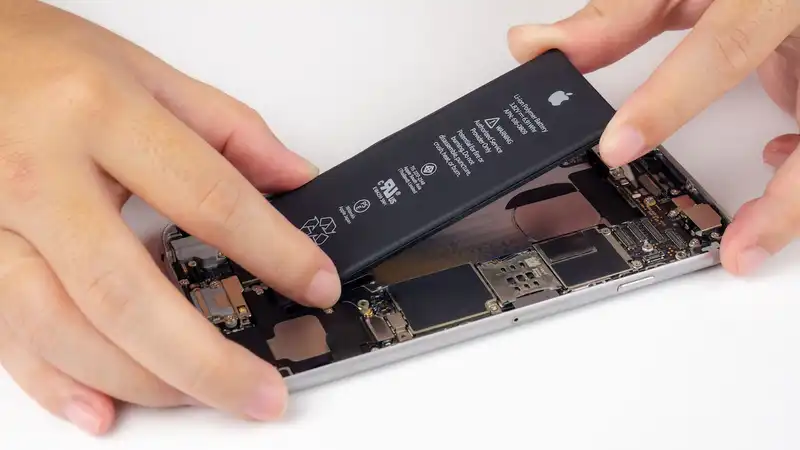Apple is redesigning its iPhone batteries to make them easier to replace, according to a new report from The Information The move is in response to European Union regulations requiring smartphone makers to make batteries easily replaceable by owners by 2025
Apple has been embarking on consumer self-repair for several years; iPhone owners can order parts and tools to replace parts of their phones, including the screen and camera
The battery is currently difficult to replace on the iPhone 15 It requires special tools, including a "battery press," which is a dedicated machine In addition, the battery is glued to the phone with an adhesive strip that must be carefully removed with tweezers To break it, a solvent is needed to remove it
According to sources at The Information, Apple is working to make this process more accessible through new technology and redesign
The company is working on a new technology called "electro-inductive adhesive peeling" This involves encasing the battery in metal so that it can be removed from the housing with a small electric shock
Of course, sources say that Apple recommends that users contact a repair specialist because of the electricity involved
Apple's recommended battery replacement by a technician costs $99 Do-it-yourselfers will need to purchase Apple's repair tool kit ($50), which will cost even more
It is speculated that Apple is trying to get ahead of EU regulations
However, the redesign that The Information spoke of may be to introduce a more powerful battery that does not require self-repair To be exempt from the upcoming law, the battery must meet three criteria: 1 maintain 83% capacity after 1500 full charges and 2 maintain 80% capacity after 1,000 charges
It must also have IP67 water and dust resistance, which the iPhone has had since the iPhone 7 in 2016 Apparently the iPhone 15 meets the 1,000 charge requirement, but it is unclear if current iPhones meet the 500 charge criteria iPhone 14 does not meet that requirement
Hints about a redesigned battery have been hinted at in the past Leaked information late last year showed a metal case for the battery and claimed a new connector










Comments